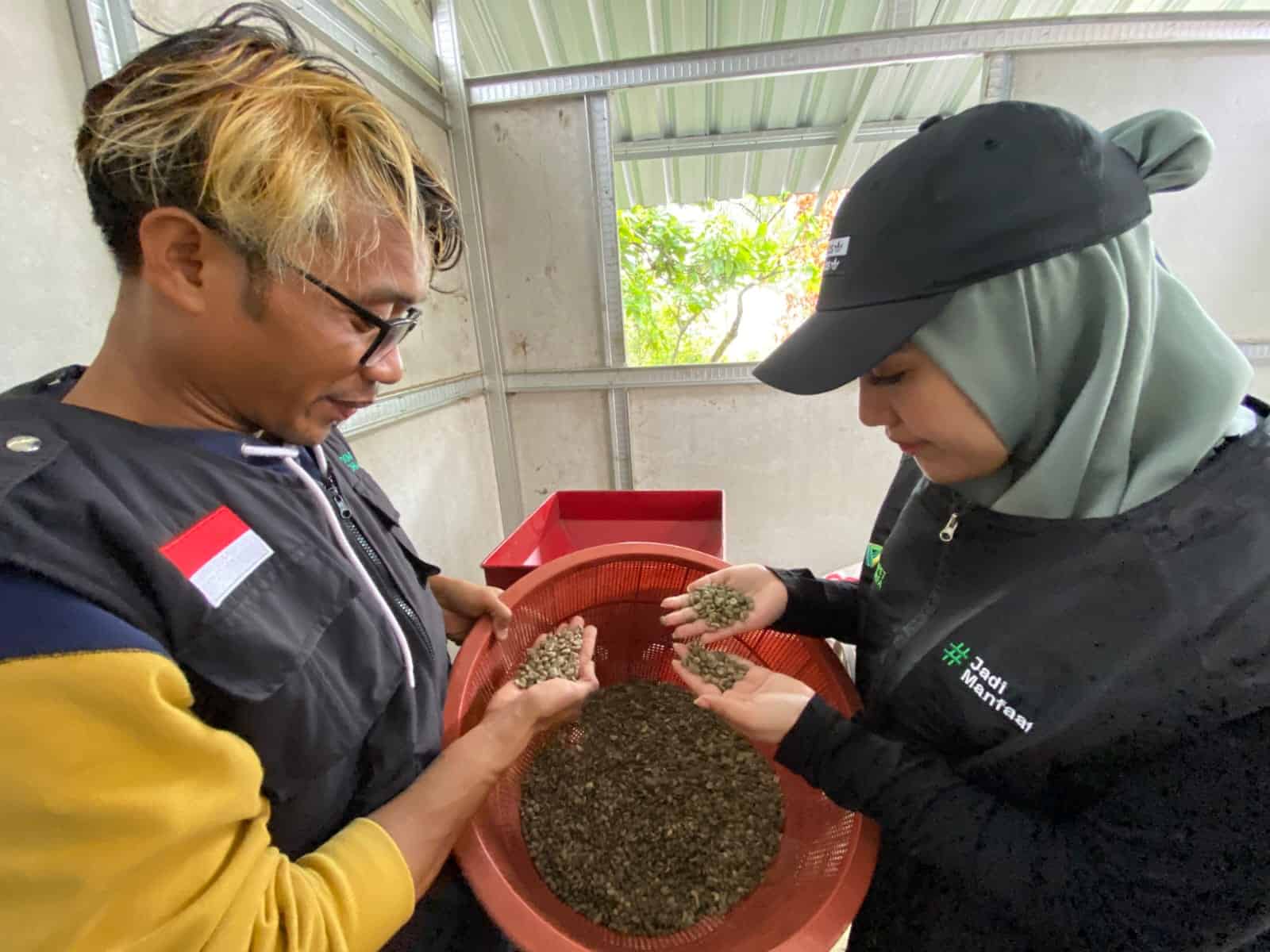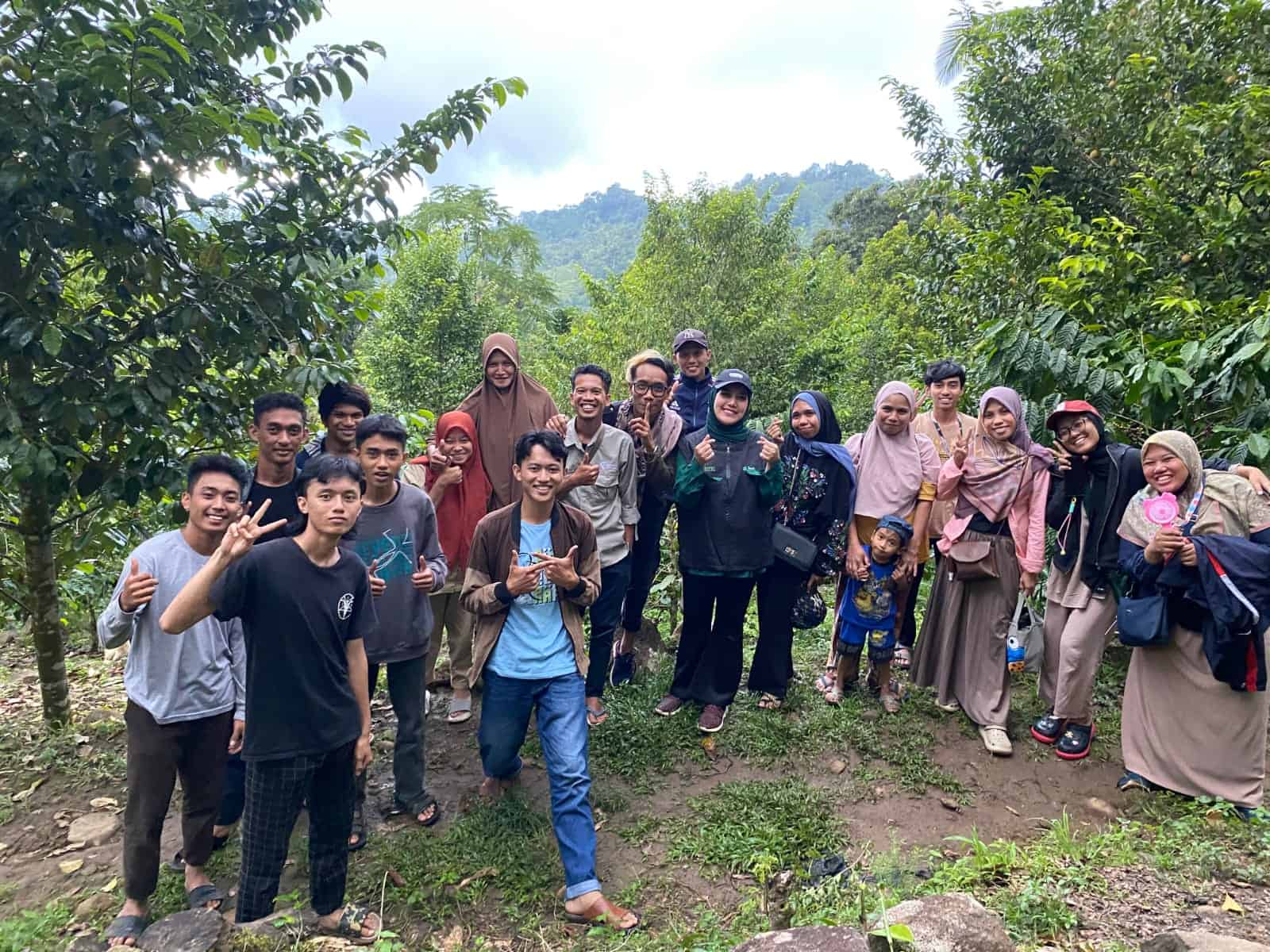SINJAI, SOUTH SULAWESI — After a five-hour road trip from the center of Makassar, the Dompet Dhuafa SulSel Team together with Aliah Sayuti, Dompet Dhuafa Super Volunteer, visited the Sinjai Coffee Economic Empowerment Plantation. There, he met two young people, Ramly and Mail, who also accompanied the team to enjoy the cool afternoon at the coffee plantation. On that occasion, Aliah Sayuti also tried the experience of picking coffee. Red coffee fruits were selected, coffee beans were then washed, then dried in GreenHouse.
Coffee beans that have dried ideally have a moisture content of around 11-12%, measured using a coffee moisture meter. The next stage, the coffee is put into the huller machine, so that the coffee beans become clean and are separated from the outer skin, which then produces green beans or raw coffee.

Next, coffee goes through a stage of grading or grouping the coffee based on its size and condition. Coffee that passes grading will then be distributed to coffee shops, coffee roasting, and other orders. While coffee with defect will be processed into powder for home coffee whose quality is equally the best.
Sinjai coffee itself is divided into two types, namely arabica and robusta. Mail introduced Aliah Sayuti and the Dompet Dhuafa Team about the V60 brewing method. This method was chosen so that delicious coffee beans produce a strong aroma of tropical fruits.
The empowerment of Sinjai Coffee also pays attention to the environment by still using organic fertilizers. The goal is that the quality of the soil is not damaged and in the future coffee plants do not die easily. In addition, this is also done to prevent soil degradation due to excessive use of chemical fertilizers.

This empowerment program certainly continues to grow and grow, which at first there were only 3 coffee farmers, now it has increased to 59 coffee farmers. In addition, previously this plantation only produced raw coffee beans, but now it has grown to produce the best coffee from the Land of Sinjai.
From Sinjai Coffee, the children of coffee farmers learn how to pick the best coffee. As time went by, the desire to enter college began to grow from the children of these coffee farmers. This makes the coffee empowerment house not only talk about coffee beans, but also the welfare of coffee farmers in terms of economy and education. (Dompet Dhuafa/Fitin)



